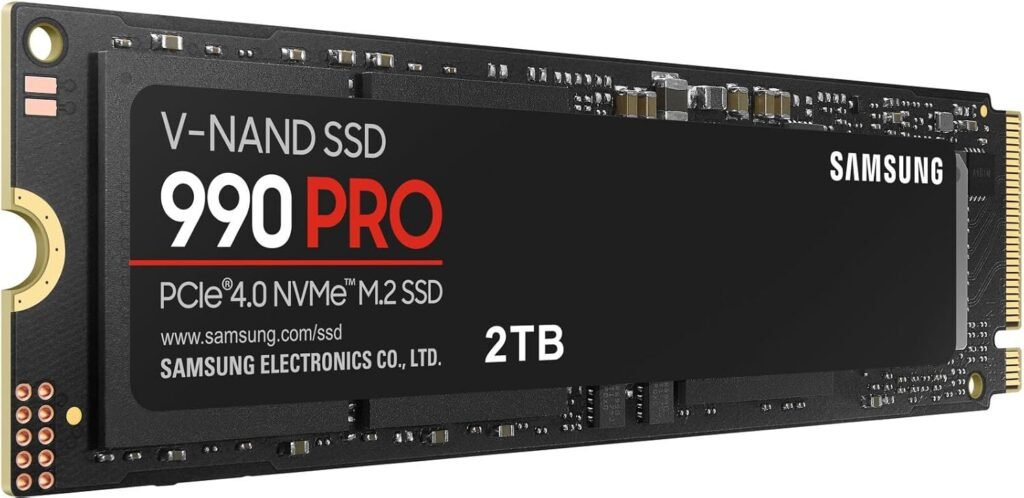A recent Windows 11 update is at the center of a growing number of reports from users claiming the update has caused significant issues with their SSD units, as reported by Windows Central.
All the tech stuff aside, this could mean severe problems for PC-based gamers as well, as much of the gaming activity on these hi-spec rigs is right in the middle of what the issue can act upon. While not affecting every single system out there, there is a good chance you’ll end up with problems should you go through with the update.
So here’s everything we know about this problem—and how you can avoid it or fix it.
Note: Affiliate Disclosure: At PlayRatedGames, our content is made possible by our readers. If you purchase a game or product through links on our site, we may receive a small commission. This support helps us continue publishing honest, independent reviews. Our recommendations are based solely on what we believe offers real value to players — never influenced by affiliate partnerships.
Windows 11 Update: what does it mean for PC Gamers
First things first: what is the actual problem
Well, according to several tech-based outlets in the field, the most recent Windows 11 Update (labeled “KB5063878”) seemingly comes with a bug that can cause solid state drivers (SSDs) to become unstable and, in the worst cas, even disappear from the system during heavy, continuous write operations.
While “heavy operations” can mean a number of things in technology, for gaming, it narrows down to a handful of activities, such as:
- Downloading or installing a large game file (e.g., a 50+ GB title).
- Patching or updating a massive existing game.
- Transferring a huge collection of game files between drives.
Initial analysis points to a potential memory leak or a flaw in how the update interacts with specific SSD controllers during these sustained high-load operations. Drives using controllers from a handful of manufacturers (see which ones further down) indicates the issue seems more prevalent on drives that are over 60% full.
When the bug triggers, the drive can vanish from the system entirely. While some occurrences have been solved with a simple reboot, other cases reported the drive’s file system becoming corrupted, leading to loss of data and needing a full format.
What brands are affected by this

It is very important to say this: while there are several brands impacted by the flawed Windows 11 update, this is not a problem caused by said brands. From all the information available, this seems to be a bug contained within the update’s installation file, which comes straight from Microsoft (who, by the way, has a looooong story of pushing updates that fix one problem while creating three new ones…).
Having said that, the following brands and models are the ones mentioned on most complaints:
- Corsair: The Corsair Force MP600 is widely mentioned.
- KIOXIA: The KIOXIA EXCERIA PLUS G4 is on the list of affected drives.
- SanDisk: The SanDisk Extreme Pro M.2 NVMe is also included in reports.
- Fikwot: The FN955 model has been cited.
- Western Digital (WD): The WD Blue SA510 has been reported to be completely unrecoverable in some tests, while the WD Blue SN5000 and WD Red SA500 have also shown issues, though data was recoverable. Some reports also point to issues with flagship drives like the WD Black SN850X.
- Samsung: There are scattered reports from users on forums and message boards claiming issues with some Samsung models, including the 980 Pro and 990 Pro, though this is not as widespread as with the Phison-based drives.
- SK hynix: The SK hynix Platinum P41 has also shown some issues, though data was reportedly recoverable.
- Crucial: There is at least one report of a Crucial T710 being affected by a file transfer issue, though not a complete drive failure.
- ADATA: One user reported a failure on an Adata SP580.
How can this affect my PC (and how to avoid it)

Like we said earlier, this bug seems to affect drives undergoing heavy writing operations. The problem is, actions like downloading and installing a particularly big game (like Cyberpunk 2077 or Microsoft’s own Flight Simulator, for instance), or catching DLCs and other updates, or even merely saving certain datasets can be interpreted as “heavy writing operations”, which increases the likelihood of the bug bringing a negative impact for you.
And if it does happen, quite a few, not-very-nice things can become a reality, such as corrupting game installations, loss of game progress (partial or overall) and even cut off access to certain digital libraries
Now, Microsoft is aware of the problem and, in true Microsoft fashion, says it’s looking into it. While this probably means a patched up version of the Windows 11 Update KB5063878 will eventually come around, “eventually” can take a long time.
So in order to avoid running into the bug or, at the very least, lower the chances of it affecting you, here are some tips for you to follow:
- Pause Windows Updates: This is the most effective preventative step. Open the Settings menu, navigate to Windows Update, and under “Pause updates,” use the dropdown menu to select the number of weeks you want to pause.
- Back Up Your Data: Ensure you have recent backups of all critical files, especially your game save data. Many games save files in your My Documents or AppData folders, and backing these up to an external drive or cloud service is a vital safety measure.
- Identify Your SSD: If you’re unsure what type of SSD you have, use a system information tool like Speccy or HWInfo to check the model and controller. If you have a model that has been flagged in reports, you should be particularly cautious.
- Avoid Large Write Operations: If the update is already installed on your system and you cannot uninstall it, avoid large, continuous data transfers. Refrain from downloading new games or updates over 50GB until a patch is released.
Now, if you have already installed the problematic Windows 11 update KB5063878 and are experiencing issues, you might be able to revert it. To do this, open the Settings app and go to Windows Update. From there, click on Update history and then select Uninstall updates. A new window will pop up with a list of all your installed updates. Find “Security Update for Microsoft Windows (KB5063878),” select it, and then click Uninstall. The system may need to restart to complete the process.
It is important to understand that simply uninstalling the update may not fix a drive that has already been corrupted. If data has been lost or the drive is inaccessible, more drastic measures might be necessary, such as using a System Restore point if you have one from before the update was installed. A last resort for severe cases is a System Reset, which will reinstall Windows. Before attempting any of these steps, it is critically important to back up any files you can access to an unaffected drive or cloud storage to prevent permanent data loss.
If you’re looking for other SSD options, our Deals page has you covered: we listed this option a while back, and we got some ready-to-play machines as well.


